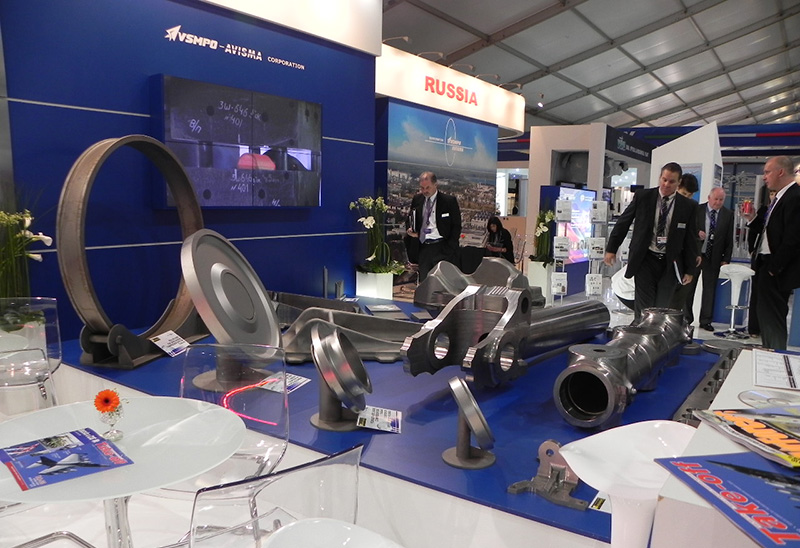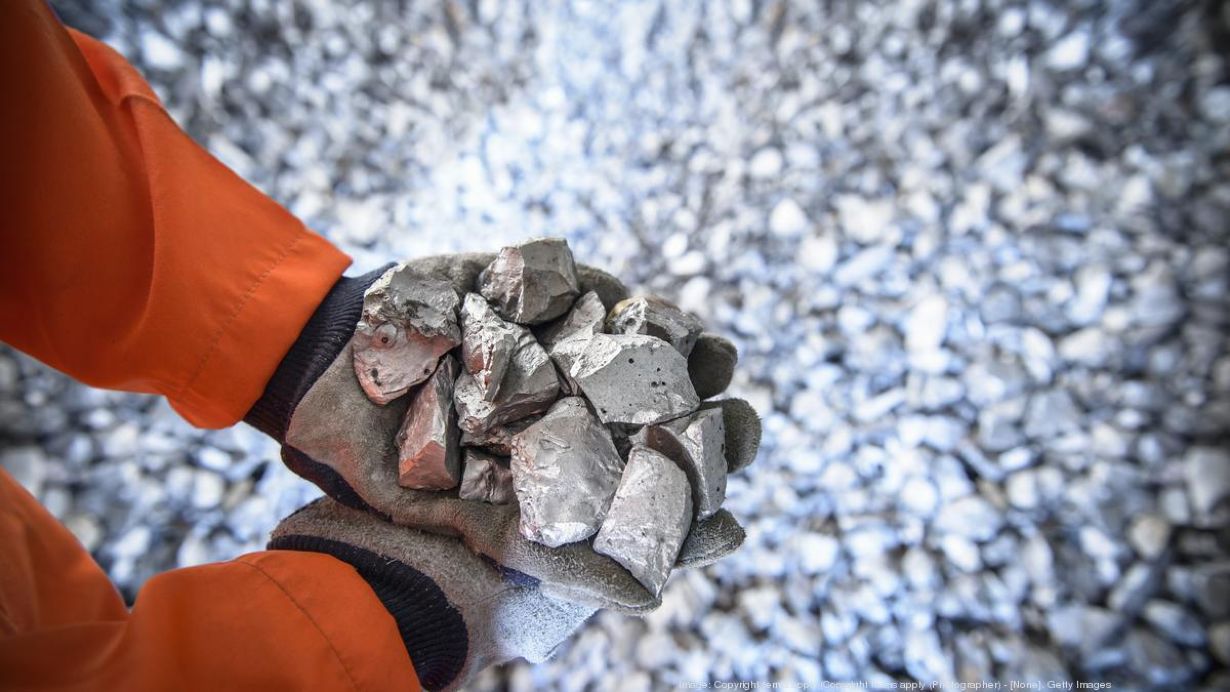The conflict in Ukraine appears to be centered around the tussle between the West and Russia for strategically important resources such as titanium, designated by the US government as one of the 35 items on its ‘Critical Mineral List.’
Titanium is as strong as steel but 45% lighter, and it can be used as a structural material up to temperatures of roughly 1000 to 1150° F. In contrast, conventional aluminum alloys are only useful up to 350° F. It has also been found to have excellent corrosion and fatigue resistance.
These properties have caused titanium to be widely used in the aerospace industry, wherein it is considered the most critical material for aerostructures and engines, both military and civilian.
As EurAsian Times had earlier reported, the US and Europe are critically dependent on Russia and China for titanium. Therefore, the European Union and the US have exempted this metal from sanctions.
For example, Russia’s state-owned VSMPO-AVISMA Corporation, the world’s largest titanium producer, has not come under Western sanctions.

It is one of the key suppliers of titanium to Europe’s largest aerospace company, Airbus. It is also the largest supplier of titanium to the Russian defense industry, especially for making numerous Russian military aircraft such as Su-30, 34, 35, and 57, MiG-29 and 35, and the Yak-130.
Airbus relies on Russia for about half of its titanium supply. In the Airbus A350XWB airframe, titanium alloys account for nearly 14% and are used in landing gear, pylons, attachments, door surrounds, frames, and other parts.
Likewise, Airbus’ American rival Boeing is known to source about a third of its titanium requirements from Russia, and the titanium alloys account for about 15% of Boeing 787 airframe by weight.
Notably, Boeing said it ceased using Russian titanium in early March, saying the company had sufficient supplies after diversifying its sourcing arrangements.
The last remaining titanium sponge manufacturing facility in the US, the Nevada-based Timet, closed indefinitely in 2020 as it could not compete with low-priced Chinese and Russian goods subsidized by their governments.
As previously reported by EurAsian Times, US’ dependency on Russia for titanium goes back to Cold War. In the 1950s, the American Central Intelligence Agency (CIA) set up a series of shell companies to secretly buy titanium from the Soviet Union to develop and construct the SR-71 Blackbird spy plane.

CIA wanted the SR-71 to fly at Mach 3+ speed – more than three times the speed of sound – which was bound to produce much kinetic heat. Also, the low radar cross-section meant using radar-absorbing composites at the pointy edges (or “chines”) of the plane’s fuselage, which also needed to withstand extreme heat.
Aluminum could not be used because of its high surface temperatures. Steel was ruled out because of its weight — only low-weight material can ensure high speed. So, Lockheed chose Titanium for SR-71, as it is incredibly lighter yet stronger, and holds up to hotter temperatures, while allowing planes to fly faster.
The United States Making Moves To Secure Titanium Resources In Ukraine?
The US last year’s annual defense-spending bill directed the State Department to investigate the “feasibility of utilizing titanium sources from Ukraine as a potential alternative to Chinese and Russian sources.”
“Ukraine has significant deposits of rare earth minerals, and if we play our cards right, could be a really attractive alternative to Russian and Chinese sources, which is where a lot of dependencies currently is,” one US congressional staffer told Newsweek on the condition of anonymity.
“As there are increasing debates throughout the West about why it’s in our interest to keep supporting Ukraine, I think this is one of the arguments that you’re going to start hearing more,” the congressional staffer further said.
If Ukraine prevails in its ongoing conflict with Russia, the US and its allies will be strategically positioned to pursue a new source of titanium. However, if Russia can take control of the country’s titanium deposits and plants, Moscow’s global influence over this strategic resource will be further strengthened.
For instance, in the initial months of Russia’s invasion, its forces seized at least two titanium ore sites in Ukraine, among several other deposits/plants of metals and minerals, according to the Canadian geopolitical risk firm SecDev and Ukrainian mining and steel industry executives.

Russia could potentially take control of even more mineral sites, considering that, as of present, most of the hostilities are occurring in eastern and southern Ukraine, which has trillions of dollars of mineral wealth.
Also, Russia has reportedly been trying to secure Ukraine’s titanium resources even before its invasion.
For instance, in 2021, Ukrainian business tycoon Dmitry Firtash, who is believed to have close ties with the Kremlin, was allegedly forced to sell his 49 percent stake in the Zaporizhzhia Titanium and Magnesium Plan, which is Europe’s only titanium sponge plant, to Russian defense sector enterprises.
Furthermore, in December 2021, Firtash’s Group DF announced that CJSC Ukrainian Chemical Products, which until 2014 was known as Crimean Titan, had sold its Crimean titanium plant to Russian Titan.
Meanwhile, Ukrainian officials are also making a case for the West by presenting Ukraine as an alternative source of titanium.
“We today have titanium and lithium, both are in great demand now, and they’re going to be even more in demand in the future,” Oleg Ustenko, an economic adviser to Zelensky, told Newsweek. “My understanding is that most of these deposits are not even tapped. The business opportunities in this sector are huge.”
Stephen Blank, a senior fellow at the Foreign Policy Research Institute (FPRI), told Newsweek that Ukraine could start supplying the West with a significant amount of titanium within months of the war’s end, whenever that might be.
“They have to rebuild the entire country from top to bottom, which is a great opportunity for investors if you think about it,” Blank said while noting that support will be needed from both the Ukrainian and the US governments to make use of this opportunity.





